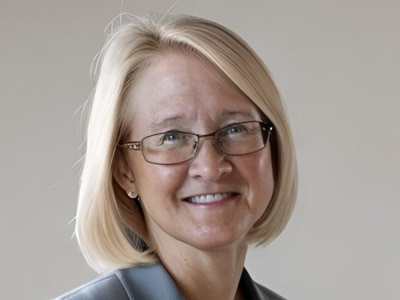MEd in Clinical Dual Certification ECE & ECSE New England field-based learning

Program Overview Why get an Master of Education (MEd) in Early Childhood and Early Childhood Special Education?
Pursue your passion for helping children develop essential skills by earning your Master of Education (MEd) in Early Childhood and Early Childhood Special Education from Southern New Hampshire University. Successful completion of this program prepares you for New Hampshire state licensure in early childhood education (pre-K - grade 3) and early childhood special education (birth - age 8).
Plus, we recently lowered our tuition rate to $455/credit for clinical MEd programs — so you can save even more.
Skills you’ll learn:
- Apply principles of assessment
- Use technology to enhance student learning
- Promote investigation, problem solving and exploration
- Assess reading, writing and mathematics in the elementary classroom
- Promote learning through scientifically-based instructional strategies
- Understand and handle issues related to children with disabilities

Courses & Curriculum Support young learners with field-based early childhood and special education courses
The master's in early childhood and early childhood special education is a full-time, 36-credit, iterative program in the state of New Hampshire. The program involves 44 weeks of clinical experiences and takes 13 months to finish*. Students are required to complete the Teacher Certification Program (TCP) Application during the Gateway I. This includes successful completion of ECE 609, SPED 501C, EDU 616, criminal background check and passing PRAXIS CORE scores.
*Time to completion based on full-time enrollment, with courses taken continuously.
Learn from instructors with industry experience
Our faculty members bring with them decades of knowledge and experience, which informs the development of SNHU’s courses and curriculum. They look forward to supporting your journey both in the classroom and as you work toward a career in your field.
Audrey Rogers
Position
Associate Dean for Graduate Education Programs
Joined SNHU
2007
Education
- EdD in Leadership and Learning from Rivier College
- MA in History from the University of New Hampshire
- MEd in Curriculum and Instruction from the University of Massachusetts, Lowell
- BA in History from Tufts University
Dr. Audrey Rogers is the associate dean for graduate education programs and professor of education at Southern New Hampshire University. She holds New Hampshire licensure as a social studies educator (grades 5-12) and as a digital learning specialist (K-12). She is past president and current member of the NH IHE (Institutions of Higher Education) Network, a consortium of all NH educator preparation programs. Her recent research focused on competency-based education and assessment literacy in preservice educators.
To learn more about SNHU faculty, visit our campus faculty page.
Campus major courses
You’ll take major courses that provide you with a solid foundation in your area of study – in some cases featuring experiential or project-based learning opportunities, labs, simulations and internships. These courses will allow you to learn a wide variety of topics and help prepare you for a role in your desired field.
Courses may include:
Visit the course catalog to view the full MEd in Early Childhood and Special Education curriculum.
Licensure & Disclosure Information
The early childhood education program is approved by the New Hampshire State Department of Education for teacher certification as leading to an endorsement in New Hampshire. The early childhood special education program is in the final stages of being approved by the New Hampshire Department of Education. Southern New Hampshire University cannot guarantee licensure, certification, endorsement or salary benefits. View disclosure information.
Can't wait? You don't have to!
Whether you’re looking to continue your education locally or traveling across the world to experience SNHU, you can apply now. We can’t wait to meet you!
Have questions? Visit our Contact Us page.
Next term starts:
June 29, 2026
Career Outlook What can I do with an early childhood and special education MEd?
Earning your master's in early childhood and early childhood special education can prepare you for a variety of careers. Graduates often teach in public schools (pre-K - grade 3), operate daycares or preschools, direct early childhood education programs and work on policy issues related to early childhood education.
Career paths include:
- Public school teacher
- Early childhood education policy
- Daycare operator
- Director of early childhood education
Yearly average openings for preschool teachers projected through 2033, according to the U.S. Bureau of Labor Statistics (BLS).1
Understanding the numbers
When reviewing job growth and salary information, it’s important to remember that actual numbers can vary due to many different factors—like years of experience in the role, industry of employment, geographic location, worker skill and economic conditions. Cited projections are based on Bureau of Labor Statistics data, not on SNHU graduate outcomes, and do not guarantee actual salary or job growth.
School of Arts, Sciences and Education Learn about the School of Arts, Sciences and Education
From understanding why people behave the way they do, to studying and tackling today's environmental issues, the School of Arts, Sciences and Education serves as an academic hub for creativity, collaboration and learning. Here, you'll have the chance to gain real-world experience through internships, student teaching, lab work and community-based projects. From studying cells under a microscope or analyzing crime scenes to leading a student-teaching session in an elementary classroom, you’ll learn how the world works so you can help make it a better place.
Student teaching opportunities
Inkwell game design studio
State-of-the-art labs
Hear from us

We offer a dynamic range of programs designed to support your career advancement through transformative educational experiences. Our offerings provide practical, hands-on learning, professional networking opportunities, and a strong sense of community.
Audrey Rogers, Associate Dean, Graduate Education Programs
Accreditations
SNHU is accredited by the regional accreditor the New England Commission of Higher Education (NECHE). The university also carries specialized accreditations for some programs.
Graduate Education for Licensure Programs
The School of Arts, Sciences and Education at Southern New Hampshire University is granted accreditation at the initial licensure level by the Council for the Accreditation of Educator Preparation (1140 19th St NW, Suite 400 Washington, DC 20036; 202-223-0077). Additional information regarding the programs covered under this accreditation and the accountability measures can be found on our CAEP Accreditation page.


Sources & Citations
1Bureau of Labor Statistics, U.S. Department of Labor, Occupational Outlook Handbook, on the internet, at https://www.bls.gov/ooh/education-training-and-library/preschool-teachers.htm (viewed Dec. 4, 2024). Cited projections may not reflect local and/or short-term economic or job conditions and do not guarantee actual job growth.


